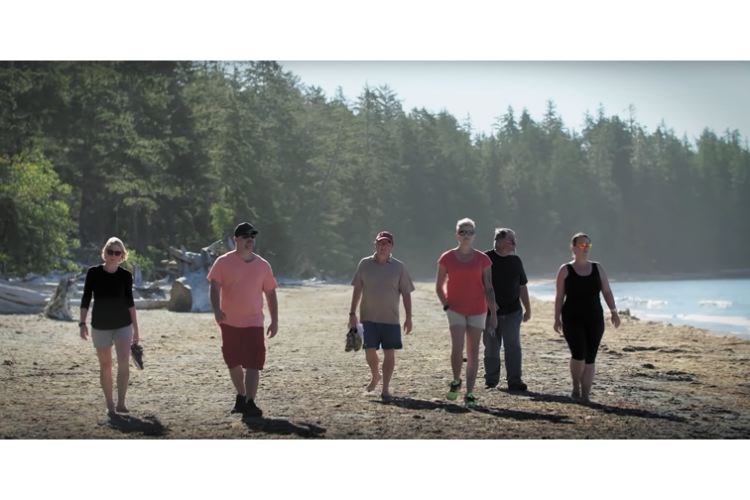There's so much to watch on TV, between a new season of network shows, playoff baseball set to begin, football in full swing, NHL hockey right around the corner and endless series and movie options on streaming services.
Yet there's only one must-see program this fall and there's only three one-hour long episodes to watch so it's not a huge time commitment but it might be the most relevant and thought provoking television you've ever seen.
The premise of First Contact is ridiculously simple: take six adult white Canadians - three men and three women - of various ages and backgrounds (but all with firmly held opinions about Indigenous peoples) and give them a month-long immersion into the lives and experiences of Aboriginal Canadians. The participants visit six communities, from Ahousaht on the west side of Vancouver Island to Kimmirut in Nunavut.
Nothing is held back and - particularly in the first episode - the six white participants are given ample opportunity to spout every racist and cultural belief they have about everything from residential schools, missing and murdered women, substance abuse, incarceration, remote reserves, traditional hunting and modern practices.
As Angela Sterritt reported for the CBC last week, after the first airing of First Contact on the Aboriginal Peoples Television Network (APTN), many Indigenous and non-Indigenous viewers were shocked and horrified by what they saw. Some felt the program was hurtful and suggested that it's not the responsibility of Aboriginal people to combat racism and educate white Canadians. Others questioned the merits of trying to change the well-established, difficult-to-change views of adults, rather than to educate children to hopefully grow up with increased racial and cultural tolerance.
While those concerns are certainly legitimate and worthy of further discussion, they miss the two core themes of First Contact.
On one hand, the show portrays Indigenous peoples, their cultures and their concerns as everything that is good about Canada and Canadians. They are polite, patient and respectful, proud of who they are and where they come from, saddened by past harms and current problems but hopeful things are getting better.
They know how deplorable their living conditions are in many of their communities but their love and allegiance to their families and to their ancestral lands seems completely reasonable.
Put another way, the Indigenous perspective in First Contact is the "normal."
On the other hand, the white Canadians are the abnormal ones, uneducated boors so stupid that they confuse their ignorance with knowledge and wisdom. Their disgusting biases are held up high for ridicule, their close-minded hate laid bare in all of its cruelty. They don't even sound Canadian, they sound like racist American jerks, the ones too many white Canadians believe they are nothing like.
First Contact is as embarrassing and uncomfortable to watch for a white viewer as it is to be around that loud and dumb uncle everyone has that complains about lazy natives while stuffing his face with bannock on Canada Day.
Worse, in the comfort of our homes, we're not just confronted with our uncle but ourselves.
Perhaps the only problem with First Contact was airing it on APTN. Indigenous Canadians certainly require no education about their cultures nor reminders of the historical injustices they've suffered and the ongoing prejudices of mainstream white Canada.
First Contact belongs on the CBC. It would certainly be far more relevant modern Canadian viewing than Don Cherry or another tiresome remake of Anne of Green Gables. First Contact belongs in Parliament for the senators and MPs who think residential schools provided nothing but quality education. It belongs in colleges and universities and high schools.
Most of all, First Contact is for Canadians who don't have the first clue but think they already know everything there is to know about Indigenous peoples.
-- Editor-in-chief Neil Godbout



